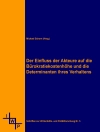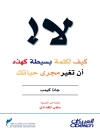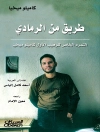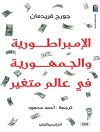The Balkans, also known as the Balkan peninsula are a geographic area in southeastern Europe. It is bordered by the Black Sea and the Aegean Sea in the east, the Adriatic Sea and the Greek Sea in the west, the Mediterranean Sea in the south, and by the Dinaric Alps and Transylvanian Alps in the north. The Balkans comprise the areas of Greece, Albania, Bulgaria, Kosovo, Bosnia and Herzegovina, Croatia, Slovenia, Republic of Northern Macedonia, Serbia, Montenegro, Romania, Turkey (the European part). Its total area is 728, 000 km2 and the population is about 60, 00, 000. The region takes its name from the Balkan Mountains that are extended from central Bulgaria to the eastern region of Serbia.
The great importance of this region in terms of geopolitical, geo-economic, and geostrategic issues has resulted in the regional and supra-regional great powers being interested in this part of Europe and they are making efforts to make an influence in the region in a way that enjoy the interests of this area.
The Islamic Republic of Iran, due to the history of relations with the Balkans, is trying to make an influence in the region and establish a position for itself. The United States (US) as its traditional rival, however, has made efforts to apply its influence in the countries located in the region and prevent the establishment of relations between the Balkan countries and the Islamic Republic of Iran. At the same time, the US is making use of its prominent foreign policy tool (i.e. sanctions) to avert the Islamic Republic of Iran’s influence in the Balkans as well as preventing the cooperation between the Balkans with the Islamic Republic of Iran.
Thereby, in this book, we discuss the economic, political, and cultural relations of the Islamic Republic of Iran with the Balkan countries, in addition, we address the effects of U.S. sanctions on the economic, political, and cultural relations of the countries located in this region with the Islamic Republic of Iran.
Over de auteur
Born on the 28th of January, 1996, in a family that loves art, literature and history. Ellias soon found his taste in literature and especially poetry. He wrote his first limerick when he was 12 years old.
Later on, when he was 14, books like ’the peace book’ by Todd Parr, ‘let there be peace on earth: and let it begin with me’ by Jill Jackson and Sy Miller, and ‘What does peace feel like?’ by Vladimir Radunsky helped him to get familiar with the essence of peace. Reading poems by Calude Mckay, Wendell Berry and Robert Frost at that age inspired him to start writing poems in a more serious way. Sonnets of Shakespeare were also good sources of inspiration for him. So when he was 16, Ellias wrote a book called ‘International Poems Collection’. The book got the first provincial place in the most famous competition of inventions in Iran, ‘Kharazmi’, and the fifth place in the country competition, yet to be the only project of its kind. This book received confirmations from the University of Isfahan and now is being preserved in the ministry of science and research and technology.
The next year, Ellias with the cooperation of two hardworking and creative friends (Hosein Heidari and Hooman Danesh), wrote another poetry book called ‘A Path to Salvation’. This book also won Kharazmi awards. His Excellency, Dr. Zarif, wrote a thanks letter for Ellias for the book since it includes some nice and extraordinary elements of literature, humanity, peace and international relations.
In 2015, he was the only Asian representative in the second anniversary of Mandela, in Johannesburg, and it was after this event that he published the book ‘Peace Poems’ which was confirmed by the archive center of the aforementioned institute. Before his trip, during a personal meeting with the South Africa minister of art and culture, his projects were praised and he was given the Robben Island Treasure-icon in advance. Returned to Iran, he was invited to give a lecture on the Mandela and their project in the United Nation, Iranian Branch in Tehran with the presence of the Iranian minister of art and culture and other officials.
Later on, he and Paul Amrod collaborated on the longest modern epic in the history of English literature called ‘Adventures of two captains, volume one’. The book has been published by the most credible publishing house in Iran named Janagl Javidan. They are currently working on the second volume and even write an opera based on the series.












